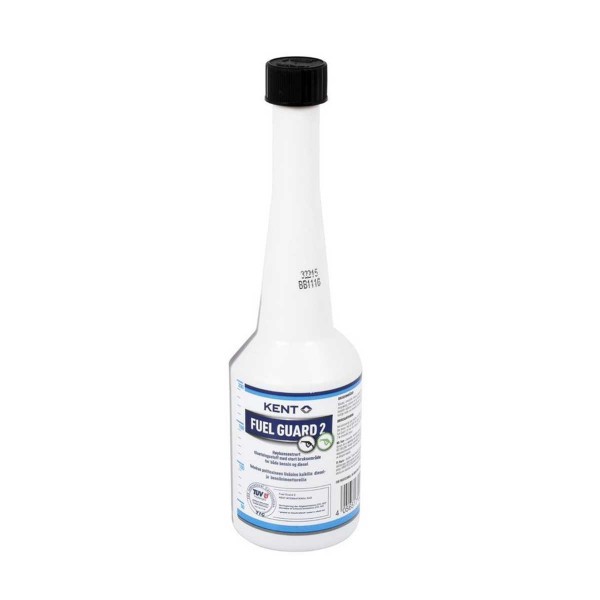- -€1.67
Kent Fuel Guard II is a gasoline and diesel fuel system cleaner.
This product is particularly useful for boats during periods of inactivity, to prevent fuel oxidation, injection system deterioration and fuel tank corrosion caused by humidity (condensation).
Read moreFeatures and benefits:
- For use in gasoline and diesel
- Lubricates fuel components
- Disperses water in fuel
- Ashless dispersant
- Contains antioxidants
- Extends pump and injector life
- Prevents corrosion, fungal and microbial contamination
- Will not strip or damage engine parts, reduces intake valve deposits and fuel injection deposits
Applications:
This product was developed primarily as a cleaner and lubricant.
The other components provide lubricating, anti-corrosion, anti-oxidant and anti-wear properties to ensure continued engine performance.
It contains an improved dispersion system that eliminates water contamination from the feed system to prevent corrosion and micro-organism growth.
This product is a fuel system cleaner for gasoline and diesel engines. Compatible with all common unleaded gasolines (including E10), fuel oil (red) / RNG and bio-diesels.
Removes residues (gums, resins and tars which are present in all fuels) from internal components while also lubricating moving components.
Instructions:
As a preventive (continuous) treatment: Add 1 ml per 1 liter of fuel - for example, 50 liters of fuel require 50 ml. Add the product to the fuel tank before adding fuel. Repeat before each tank filling.
As a curative circuit and injection system cleaner (rapid): Add 5 ml to 1 liter of fuel - for example, 50 liters of fuel requires 250 ml. Add the product to the fuel tank before adding fuel.
As a storage/wintering additive for boats: Add 250 to 500 ml for 50 liters of fuel (5 to 10 ml per liter). Immediately before winterizing the boat, add the product to the fuel tank before adding fuel. For maximum protection, the boat should be stored with the fuel tank fully topped up. After the storage period, the engine can run normally without draining the fuel tank. For storage periods longer than 6 months, it is recommended that the engine is started and checked for proper combustion of the old fuel before putting the vehicle back on the road.
Customer Reviews (0)
Questions / Answers



